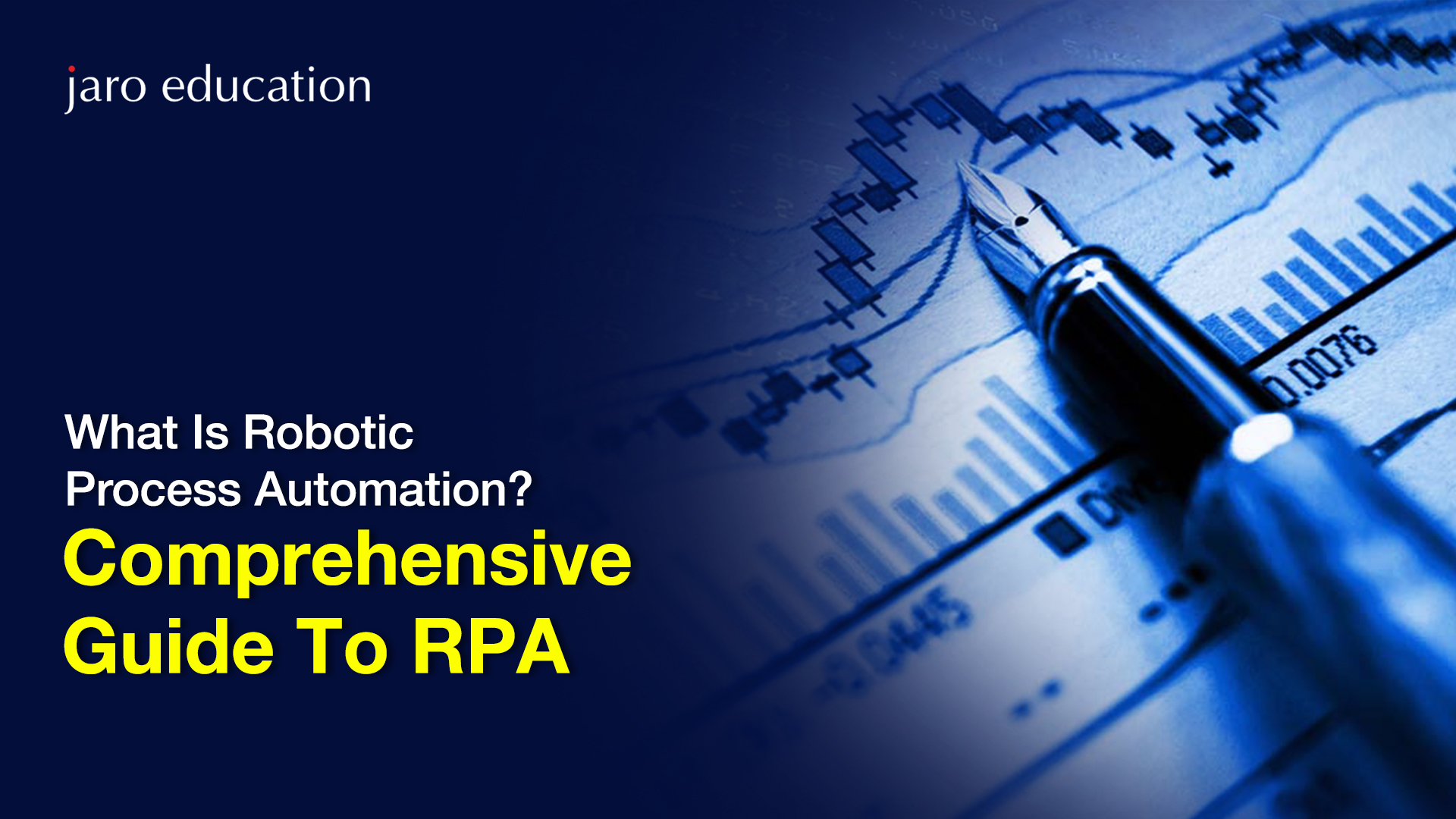Technology has emerged as the new currency of the twenty-first century. Companies of all sizes are looking to harness technology to better their business operations and make more informed choices, whether big or small.
Visions of digital transformation have sparked a technology “arms race” among businesses as they seek critical differentiators that would give them an edge over their rivals in the marketplace. This has resulted in the increased number of Executive MBA in Financial Markets. As a result, the MBA in Financial Markets has more value than ever in the constantly evolving market.
A brief overview of Robotic Process Automation
Robotic Process Automation (RPA) is a term that refers to the use of “robotic” software agents to automate manual business procedures that are either too long or too tedious to complete manually. Automation of predictable and repetitive activities, RPA, is one of the subfields of information technology that aims to boost efficiency and save costs by scripting predictable and repeated tasks.
In contrast to IT automation, robotic process automation (RPA) separates itself by incorporating another key advance in business technology: artificial intelligence and machine learning. Traditional IT automation solutions may be effective only in formulaic conditions, with minimal volatility and few unexpected occurrences.
RPA, on the other hand, can make use of artificial intelligence and machine learning methods to forecast the optimum course of action even in the face of unforeseen circumstances. It can automate a wide range of critical business operations when equipped with these characteristics.
Companies in the financial services industry, for example, may utilize RPA to review credit card applications and detect potentially fraudulent activity. In addition, RPA may be used by healthcare institutions to register new patients and connect with insurance providers, among other things.
As more and more firms see the advantages of robotic software agents, the demand for robotic process automation (RPA) is growing quickly. As a result, an Executive MBA in Finance is more valuable than ever.
How does it benefit businesses?
Software that automates repetitive, rules-based labor processes that rely on digital data is available to be used for robotic process automation. These operations include, among other things, running queries and calculations, creating and updating records, filling out forms, producing reports, copying and pasting, and performing other high-volume transactional actions that need the movement of data inside and across applications.
In the RPA world, “robots” operate at the surface and user-interface level, duplicating the keystroke and mouse clicks performed by human employees and completing the job much like humans, by logging in to programs, entering data, performing computations, and logging out of the system.
Contrary to a human worker, however, the bot does not need a physical screen to complete the operation and instead completes the task’s process phases in a virtual environment to be more successful. Furthermore, unlike other software programs, these bots may be created by anybody without specialized coding skills, making business units the perfect consumers for robotic process automation (RPA).
What are the advantages of Robotic Process Automation?
Using manual procedures is wasteful; it increases the risk of human mistakes and increases employee unhappiness. The following are two major examples of the advantages of utilizing RPA, according to vendor research on this subject:
- Staff concentration on greater value-added tasks leads to improved corporate success as well as increased employee satisfaction (61 percent).
- Expenses of labor and outsourcing should reduce by 25–60 percent.
Conclusion
Software robots may execute tasks similar to those performed by humans, including understanding what is on a screen, completing the appropriate keystrokes, navigating systems, identifying and extracting data, and performing a broad variety of prescribed activities. However, software robots can do the task more quickly and reliably than humans, without the need to get up and stretch or take a coffee break.
The Executive MBA in Financial Markets from NSE Academy and GNIMS will be a valuable asset in your journey towards mastering robotic process automation. Learn the depth of RPA implementation with this MBA in Financial Markets.
FAQs
- Is there study material available for preparing for this examination?
Yes, you will get all the required study material for this course. This study material will cover all the important concepts needed for a great score in the exam.
- Do I have to pay for the study material?
No, you do not have to pay any additional fees for study material.
- When will I receive the Executive MBA in Financial Markets course certificate?
You will receive the Executive MBA in Financial Markets course certificate after the completion of the entire course.
Enroll today for the Executive MBA in Financial Markets from NSE Academy and GNIMS to kick-start your journey towards achieving expertise in robotic process automation.






